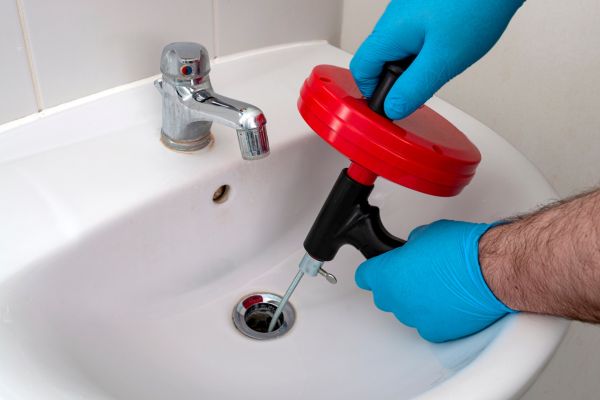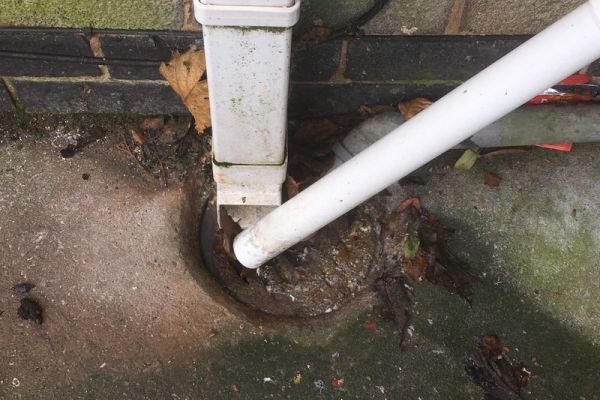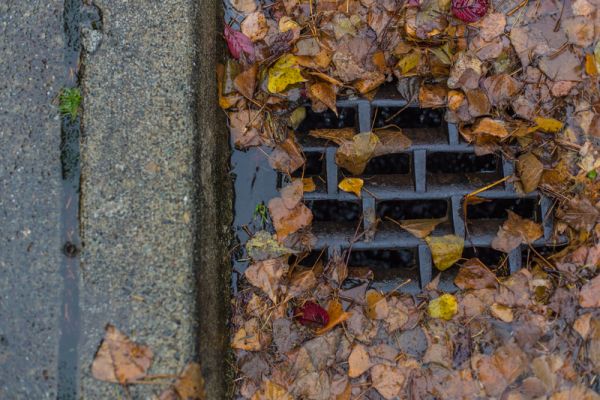In this article
5 Most Common Winter Plumbing Problems
As the nights draw darker and colder days approach, it is time to prepare our homes for the harsher elements and prevent the suffrage of midwinter plumbing problems. Plumbing and drains are more likely to encounter issues during the winter months, due to the higher usage and the colder environment. It is a time of year when nobody wants to be outside dealing with blocked drains or frozen pipes.
Blocked Drains
In late autumn and early winter, trees shed their leaves. These leaves tend to congregate around guttering and drains, and the cold, wet weather makes them mesh into larger globules. Also, around this time of year, it is common for more cooking to take place as people leave their houses less, resulting in more waste byproducts like oil and fats being produced. These often get poured down the sink, and with the outside temperature being so low, quickly cool and harden. With this build-up of leaves and grease coming together in the cold drainage system, you might find yourself having to contend with a blocked drain.
To prevent this common plumbing problem from happening to you, it is important to have your drains checked to ensure they are winter-ready, and should the worst happen, they can be fixed. Give Cotswold Drainage a call on 01386 882324 or email us at
Frozen Drainpipes
When drainpipes freeze, they can block the flow of wastewater, and if the frozen pipe isn’t repaired quickly, this can cause the pipes to expand and burst which could cause further damage to your property. Drainpipes in unheated areas, such as cellars or external walls, are more vulnerable, and should a blockage occur, water will pool, and standing water will freeze rapidly – a plumbing problem nobody wants to be dealing with in the middle of a winter’s night. So here are a few handy tips to help keep your water flowing.
- Insulate your pipes with foam tubing where possible, and for pipes in cupboards, open the doors for periods to allow the warm room air to circulate in.
- Seal gaps and cracks that may appear along the pipe, using caulk or spray foam to prevent cold air from penetrating the pipe.
- Keep the heat on at a minimum of 13°C when you go away to ensure the interior of the home stays above freezing.
Leaking Water Pipes
As the temperature drops, external water pipes become more fragile and at risk of cracking. If the water inside your pipe has frozen at any time, it may have caused structural damage to your pipe and left cracks and holes you are unaware of. These holes would result in leaky pipes, affecting your water pressure whilst also allowing cold air into your pipe, causing a greater risk of recurring freezing, further expansion and cracking and eventual collapse. This is a serious plumbing problem and to prevent it you must have your water pipes fully checked by a specialist to ensure they are winter-ready.
Problems with Your Water Heater
There is no plumbing problem more shocking to the system than when the hot water goes, and even more so on a dark winter’s morning. There are a variety of reasons a water heater may stop working but one of the most common is old age. Quite often the reason a water heater fails is due to one component, such as the thermostat, gas control valve and heating coils, and this can typically be replaced without having to invest in a whole new system.
However, water heaters only have a lifespan of about 10 years, so it is recommended to have them regularly checked and maintained, especially once they are about seven years old, to ensure they don’t break down when you need them most.
Frozen Septic Tanks
Though the contents of a septic tank are typically warm thanks to microbial activity and warm wastewater, septic tanks can freeze during the winter months for various reasons. The most common culprits are insufficient snow cover, shallow tank placement, irregular usage, blocked or malfunctioning pipes and cold air infiltration. Ways to protect your septic tank from winter damage would be to ensure you have adequate snow cover, the system and pipes are regularly inspected, avoid compacting snow directly above your tank placement and maintain a constant flow of warm wastewater.
It is recommended to have your septic tank cleaned and inspected on an annual basis to ensure efficient cleaning and prevent this common plumbing problem.
Contact The Drainage Experts and Get Your Drains Ready for Winter
Ensure that your domestic drains work seamlessly during the winter months by contacting a member of our expert team or by booking your drain survey today.
Get in touch
Contact our friendly and professional team via form, phone or email for any drainage issues you may have.
From blocked drains to septic tank repairs and replacements, we're here to help. We have over 25 years of experience and offer 24/7 emergency callouts.
-
01386 882324
-
WhatsApp
-
This email address is being protected from spambots. You need JavaScript enabled to view it. -
See what our customers think


